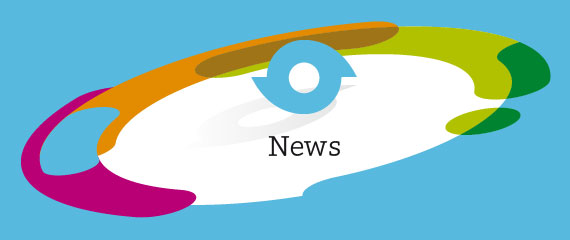Meet the Expert | Philippe Peycam
Meet Philippe Peycam, director of the International Institute for Asian Studies (IIAS) in Leiden since 2010. IIAS is based at Leiden University, where it works as an outwardly globally oriented interdisciplinary institute with strong connections within the university as well as throughout the Netherlands, Europe, Asia, but also Africa, Latin America, and beyond.
Philippe Peycam has always nurtured a multi-centred perspective. In his own words: “I always like to displace myself.” This has led him to work all over the world. As director of IIAS and as a researcher, he values collaboration and co-creation of knowledge in a global context.
Before working at IIAS, he graduated at the School of Oriental and African Studies in the UK. Afterwards, he stayed in Vietnam to work on his PhD on early 20th century’s political culture in Saigon before moving to Cambodia where he worked as the founding director for the Centre of Khmer studies (CKS). There, his most important objective was local capacity building: to facilitate scholarship on Cambodia, with Cambodians. This is where he came into contact with IIAS: “When I was at CKS, we held two joint events in Cambodia.”
After working there for ten years, he received a grant that made him move between the USA and Singapore to write about his experience in Cambodia. This eventually led to his book, Cultural Renewal in Cambodia. It is during this time that he learned IIAS was looking for a new director, and he applied. When asked what brought him to Leiden, he says: “I came here because of IIAS.” While a relatively small institution, IIAS already had a reputation for its imaginative team and its range of highly potent and internationally visible activities. While the CKS focused on local capacity building, the IIAS engages with Asian partners in their context, within a trans-regional framework. For him, “The IIAS was a natural global extension of what I was already doing locally.”
Dr. Peycam emphasises that IIAS operates as a collective of colleagues in which hierarchy is not important. At the institute, his role amounts to combining different perspectives and practices to shape a common vision. This cohesion of approaches is manifested in the institute’s five overarching functions. The first two are research support and educational facilitation. IIAS offers fellowships and other initiatives such as In-Situ Graduate Schools. The institute collaborates with the Leiden University Faculty of Humanities to offer a dual-degree in critical heritage studies of Asia & Europe. In the same facilitation line, IIAS coordinates the initiative, Humanities Across Borders (HAB), a trans-regional programme that proposes innovative modes of locally embedded - globally connected knowledge creation and education, which highlights the civic role of universities.
Next is dissemination and communication, through the widely read IIAS Newsletter, podcasts, publications and book reviews. Quite importantly, they reach out well beyond purely academic circles. The fourth function is about building knowledge-based communities or networks in local, regional and global contexts. The International Convention of Asia Scholars (ICAS) is one of the most successful and visible of these trans-regional initiatives. And they help create many other platforms and networks all over the world. Lastly, IIAS works on a number of civically-minded capacity building initiatives: from in-situ thematic strategic roundtables, to the facilitation of new programmes at universities in the Global South.
IIAS is a founding LeidenGlobal partner since its start in 2013. In 2019, IIAS collaborated with many of its Leiden-based partners to organise ICAS 11 ‘Asia and Europe, Asia in Europe’, which brought over 2,500 participants to Leiden. In 2022, IIAS and its programme HAB collaborated with LeidenGlobal to organise the IIAS-LeidenGlobal In-Situ Graduate School on Textile and Dyes, which took place in the framework ‘Leiden 2022, European City of Science’.
Interview by Judith, LeidenGlobal Intern
December 2022
Would you like to learn more about IIAS, have a look at https://www.iias.asia

